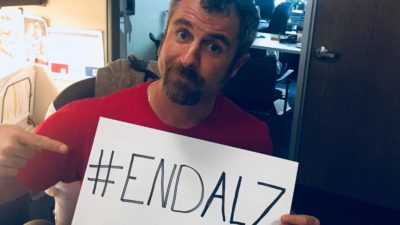COVID-19 update
Hospitalizations in Travis County have been creeping back up this week. Two more have been added over the past day. 93 of the 766 active coronavirus cases in the county right now involve hospitalization. 28,643 cases have been confirmed since March and 27,462 are recoveries. That recovery number is an increase of nearly 100 from just one day ago.
Williamson County’s number of active coronavirus cases remains unchanged from a day ago, at 256. Although six more people have been hospitalized, that number’s climbed to 18 this morning. The county also added only a small number of new recoveries to its totals. 8,179 people have made a recovery out of the 8,476 who have been infected since March.
Upcoming flu season
For most of the year, the focus has been on coronavirus. However, we’re now moving into the flu season. Travis County Health Authority Mark Escott is warning of what’s being called a ‘twindemic,’ where both viruses wreak havoc. Escott says the flu maxed out the county’s ICU capacity just last year.
“If you imagine the flu plus COVID-19, it’s just not going to be sustainable. We’re going to have to ration care,” says Escott.
He says you should not wait to get the flu vaccine before next month, which would put Travis County in a much more advantageous position to deal with both viruses.
Polling sites in Travis County
A list of polling sites has been approved for Travis County. 178 different sites have been approved, as well as 37 early voting locations. They will include music venues, churches, wedding venues and even yoga studios. The county is spending $7 million just on the polling sites.
UT enrollment
Overall, enrollment at the University of Texas this year is down a bit. The 50,481 students taking classes this semester is a 1.2% decline from one year ago. What’s very surprising is the freshman class. It’s one of the largest ever. 8,459 first year students are currently enrolled, marking an increase of 3.5%
Police recruiting billboards
More police departments or trying to lure Austin cops away and they’re not at all trying to keep it a secret. Midland and Corpus Christi police have purchased recruiting billboards in the Austin area. Corpus Christi Police Union President Scott Leeton tells CBS Austin it is a direct response to the City Council’s defunding.
“Those Austin officers probably feel that the city doesn’t have their back. They’re not going to take care of them. That to me, is the message loud and clear,” says Leeton.
The Austin Police Association says APD is losing 14-15 officers a month right now, with many leaving for other departments.
Counselor program added to 911 system
Some on the Austin Public Safety Committee are pleased with results from the recent addition to APD. The committee, which is looking at ways to reimagine public safety in Austin, learned that a counselor program added to the 911 system has turned hundreds of emergency calls away from the typical officer and to a counselor.
“We have had over 800 diversions, so it’s a far cry from the 300 we saw in June because June is when we really started to escalate the program instead of sending officers, and so we’ve seen a significant increase,” says APD’s Lieutenant Ken Murphy.
Once there is a full 24-7 rotation of counselors on duty, he believes that count will jump.
Spanish Oaks federal violation
The Bee Cave community of Spanish Oaks could be breaking federal law by not allowing census workers inside a gated area to do their work. Attorney Chad Ruback tells KXAN that it sounds like a federal violation to block a census worker.
“It would require an act of Congress to exempt an individual homeowner association from this federal law,” says Ruback.
The neighborhood HOA now reversed course and says it will allow census workers in so long as they have a specific address they’re headed to and they show proper ID.
Austin property codes
The city auditor is out with a new report on the Austin Code Department’s Repeat Offender Program. Code officer Matthew Noriega says property owners are put into the program after getting multiple violations over a 24 month period.
“This is to ensure renters are living in properties that meet minimum health and safety standards,” says Noriega.
The auditor’s report shows Austin code is not doing enough to hold property owners accountable and ensure those violations were addressed. The audit also shows the fees paid by larger properties often are not proportionate to those being paid by the smaller properties.
This news and more on News Radio KLBJ:
https://omny.fm/shows/klbjam-flash-briefing-1/am-newscast-9-23-20





